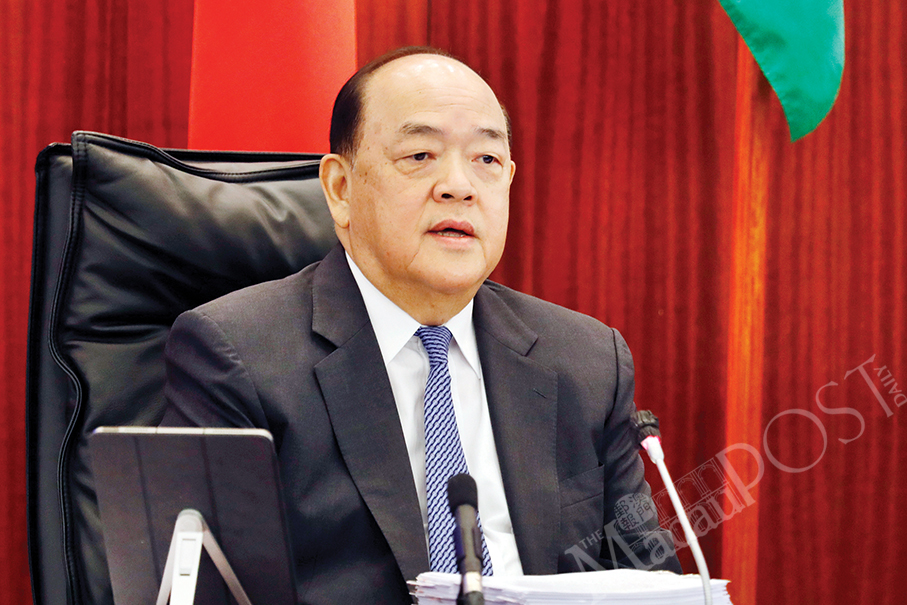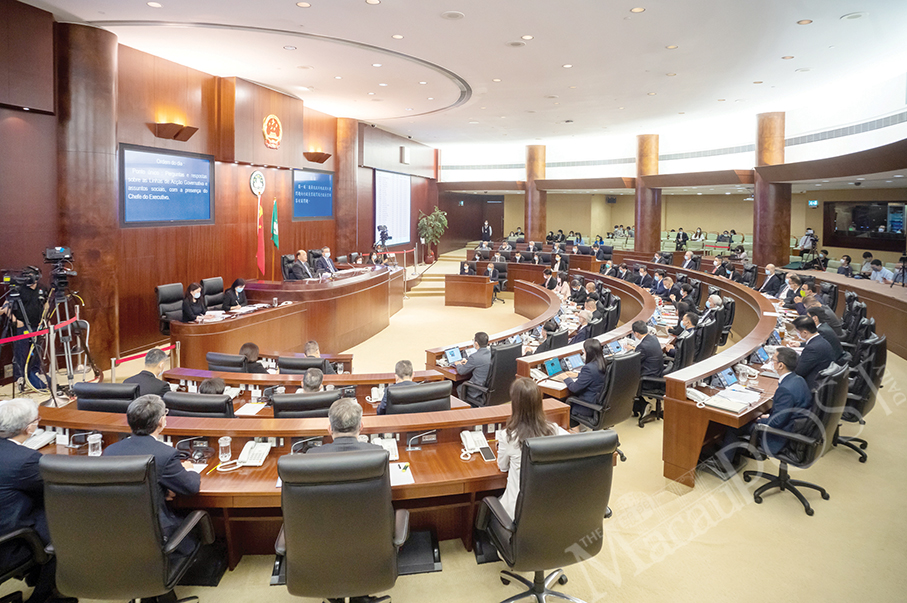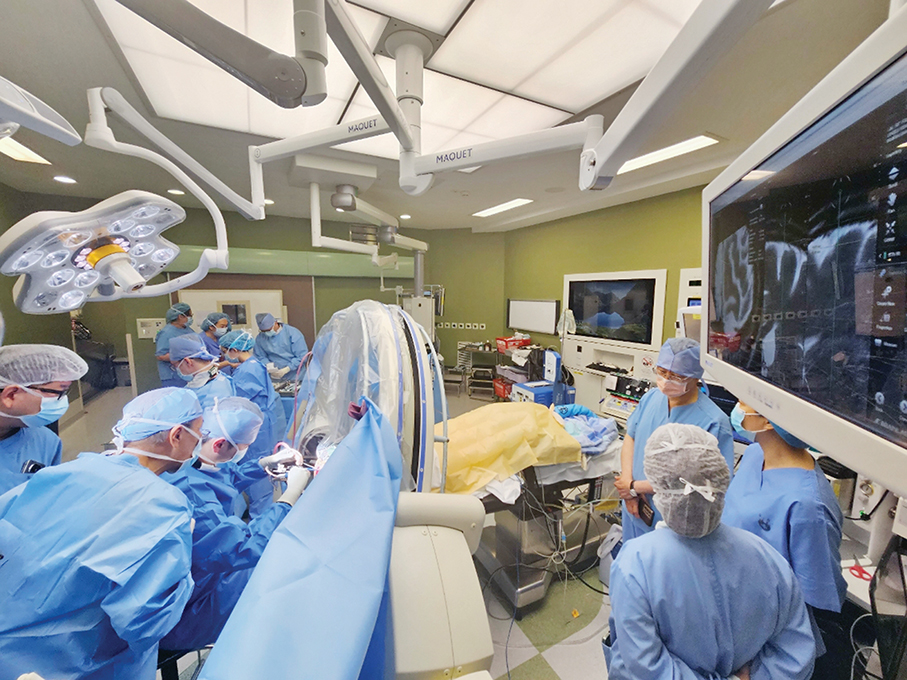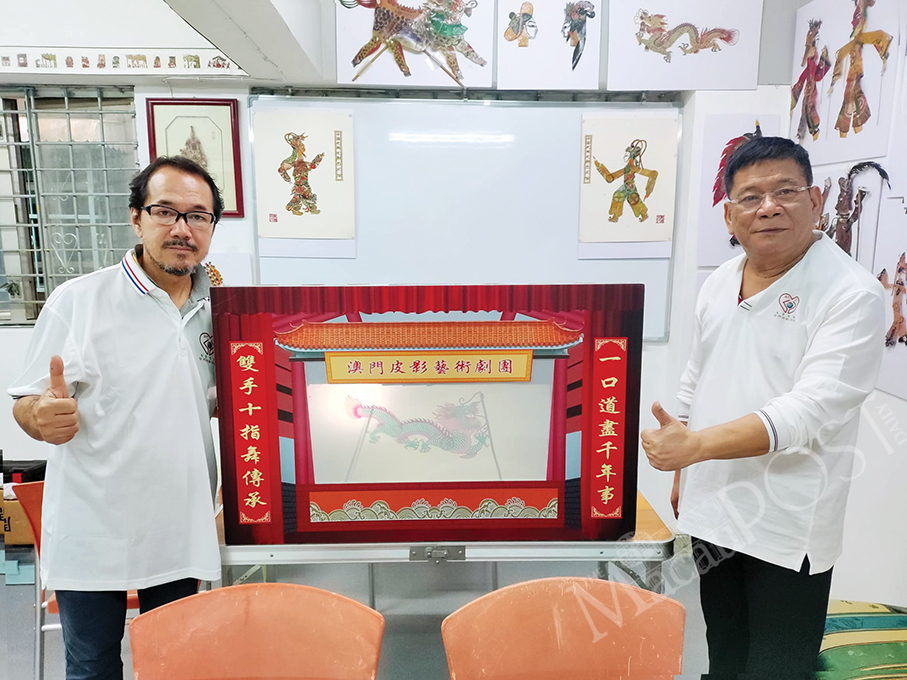Chief Executive Ho Iat Seng said yesterday that the government expects a new round of its electronic consumption benefit scheme to get off the ground next month, with the aim of relieving residents’ financial hardship and supporting local businesses, in the wake of the ongoing adverse impact of the “prolonged” COVID-19 pandemic on the local economy.
The government first revealed early this month that it had decided to roll out a new round of the programme later this year.
Ho made the remarks when answering directly-elected lawmaker Wong Kit Cheng’s question during a Q&A session in the legislature’s hemicycle. Wong asked Ho about details of the upcoming round of the programme.
Ho underlined that the government has been aware that the “prolonged” COVID-19 pandemic has had various repercussions on Macau’s economy and civil society, and understands the ongoing difficulties that residents and small and medium-sized enterprises (SMEs) are facing.
Ho said that the government has gathered and summarised opinions and suggestions raised by various segments of civil society on a new round of an electronic consumption benefit scheme, adding that the government will design the upcoming round of the programme in a way that it can be rolled out quickly, and the programme will be carried out in a “simple” way and in a way that meets residents’ and businesses’ expectations.
Ho noted that when last year’s electronic consumption benefit scheme, which comprised a 5,000-pataca startup fund and a 3,000-pataca immediate discount grant, was launched, there was a lot of controversy about how the scheme was operating, but in fact the programme supported many SMEs’ business operation and many residents’ employment. Consequently, Ho said, the upcoming round of the electronic consumption benefit scheme would be rolled out in a way similar to last year.
In addition to a new round of the electronic consumption benefit scheme, Ho said, the government is also studying other possible measures that can support SMEs, such as subsidising their water and electricity bills. Ho said that the government will submit a bill to the legislature amending its budget for 2022 so that a new round of the electronic consumption benefit scheme and other financial support measures can get off the ground next month.
Ho also noted that local residents started to receive this year’s 10,000-pataca “wealth-sharing” cash handouts early this month, urging those who have received the cash handouts to spend it more often with the aim of boosting the local economy. Ho noted that all local residents’ cash handouts amount to around seven billion patacas, equivalent to around the current value of the city’s one-month retail sales, adding that this amount could help support many SMEs’ business operations and stabilise residents’ employment.
Ho also noted that eligible local residents will start receiving a tax rebate of their personal income tax next month, also urging them to spend more often after receiving the tax rebate.
‘Synergy’ effect
Meanwhile, Ho admitted Macau’s still heavy reliance on a single economic sector and on a single source of visitors, are why Macau was suffering from a large “synergy” effect resulting from the two factors amid the COVID-19 pandemic.
Ho noted that the COVID-19 pandemic has reduced the number of visitors to Macau to the level around the time when the Macau Special Administrative Region (MSAR) was established in December 1999, as last year’s visitor number only stood at around seven million.
Ho made the remarks when answering a question from indirectly-elected lawmaker Wang Sai Man, who asked Ho whether the government’s upcoming round of financial support measures will include more targeted measure to help local SMEs.
Ho noted that there were around 5,400 retail outlets, restaurants, eateries and other catering venues in 2000, employing around 22,000 people, while the number of these venues rose to around 9,600 in 2020, employing around 74,000 people. Ho said that such a large number of retail outlets and catering outlets nowadays are also serving around seven million visitors a year, as well as local residents, adding that this is also a reason why local businesses are suffering difficulties amid the COVID-19 pandemic.
Not optimistic about May Day visitor number
Ho also acknowledged that the fact that various areas in the mainland are being hit by a surge in COVID-19 local transmissions is discouraging mainlanders from visiting Macau.
Ho noted that the average daily number of visitors to Macau had increased to around 30,000 earlier this year. However, Ho said, over recent weeks the mainland has been facing a landscape of fighting COVID-19 that is worse than last year, and the recent surge in COVID-19 local transmissions in Guangzhou is having a further adverse impact on Macau’s number of visitor arrivals.
The chief executive said that he was not optimistic about the number of visitors to Macau during the upcoming May Day Golden Week early next month.
Ho pledged that once the ongoing COVID-19 wave in the mainland stabilises, the local government will discuss with the mainland authorities the possible resumption of the authorisation to organise tour groups to Macau – which has been suspended since the beginning of the COVID-19 pandemic in early 2020.
Ho said that Macau health officials have been discussing the latest COVID-19 developments worldwide with experts in the mainland, who pointed out that no new COVID-19 variants have been detected in western countries over recent months, because of which they believed that the ongoing COVID-19 epidemic in the mainland would be able to stabilise later this year.
Ho acknowledges gaming operators’ social responsibility
Meanwhile, Ho also acknowledged that the city six gaming operators have been shouldering their corporate social responsibility by adhering to the basic principle of not laying off their staff.
Ho said that while some staff members of the gaming operators have had to take unpaid leave or half-paid leave amid the COVID-19, none of the six operators have carried out any major lay-offs of local staff. Ho went on to say that the six gaming operators are employing an excessive number of staff members in relation to the current visitor number, but they have adhered to the basic principle of not laying off their local staff.
Ho also admitted the fact that the latest unemployment rate among local residents has further increased to 4.3 percent was partially due to the closures of some junket companies and satellite casinos over the past few months.
Procreation a personal choice
Meanwhile, Ho also acknowledged that the government hasn’t any new tools to boost Macau’s birth rate, adding that, fundamentally, whether local residents want to procreate is a matter of personal choice.
Ho said that Macau’s latest birth rate has further dropped to 7.4 per 1,000 population from nine per 1,000 population when he ran his chief executive election campaign in 2019.
Ho underlined that the government has been implementing various measures that are favourable to boosting the city’s birth rate, such as 15-year free education and high-level spending on university education.
Ho said that many residents would rather have a pet cat or pet dog than have a child, asking rhetorically how the government can control residents’ willingness to procreate.
Ho suggested that lawmaker Lei Chan U, who has just one child and asked a question about Macau’s low birth rate during yesterday’s Q&A session, have one more child, so that he could become a “role model”, adding that lawmakers enjoy an income that isn’t low.

Chief Executive Ho Iat Seng answers questions from lawmakers during yesterday’s Q&A session in the Legislative Assembly’s (AL) hemicycle. Photo: GCS

Legislators attend yesterday’s Q&A session in the legislature’s hemicycle. Photo: GCS








